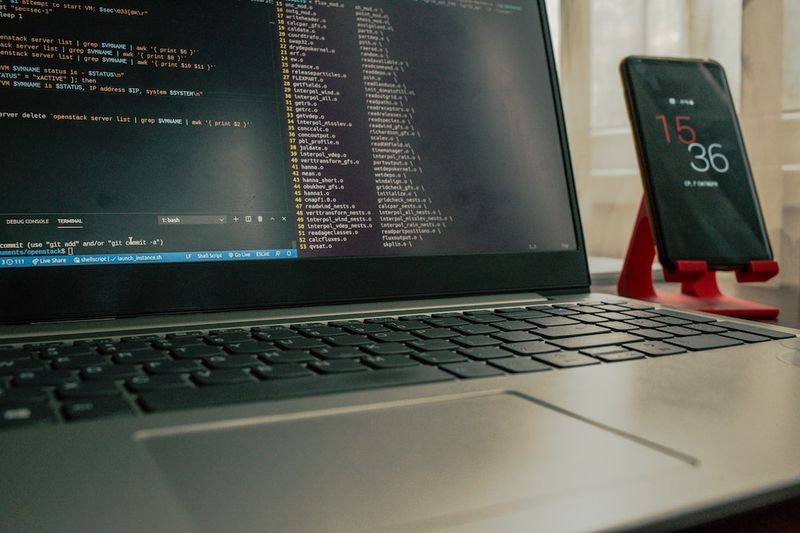Cybersecurity Report: Cloudzy Allegedly Provides Command-and-Control Services to Nation-State Actors and Ransomware Gangs
Introduction
Cloudzy, an American company with deep roots in Iran, has been accused of offering command-and-control services to over 20 nation-state actors and top ransomware gangs. A recent research report by security vendor Halcyon reveals that Cloudzy serves as a command-and-control provider (C2P) for advanced persistent threat (APT) groups associated with several governmental entities, including China, Iran, North Korea, Russia, India, Pakistan, and Vietnam. The report also suggests that up to 60% of Cloudzy’s activities may be malicious, and the company accepts cryptocurrencies in exchange for anonymous use of its Remote Desktop Protocol (RDP) Virtual Private Server (VPS) services. This article delves into the allegations against Cloudzy, explores the implications of its actions, and highlights the challenges in holding C2Ps accountable for illegal activities conducted through their infrastructure.
The Allegations
According to the research conducted by Halcyon, Cloudzy’s services are utilized by APT groups associated with Iran, such as APT 34 (also known as Muddy Water and OilRig), APT 33 (also known as Elfin), and the Bohrium/RealDoll group. Additionally, Cloudzy is reportedly used by various other groups linked to ransomware attacks on hospitals, healthcare organizations, as well as spyware development and distribution. The report suggests that Cloudzy’s infrastructure is used for malicious activities without the company’s knowledge, thereby causing significant damage. Halcyon’s CEO and co-founder, Jon Miller, emphasizes that major internet service providers (ISPs) generally perform know your customer (KYC) checks and fraud detection. KYC is a set of guidelines and regulations in the financial services industry that require professionals to verify customers’ identity, suitability, and potential risks. Despite Cloudzy’s alleged involvement in illicit activities, Halcyon’s attempt to inform the company of its findings was met with indifference. This response raised further suspicions and prompted Halcyon to conduct a more in-depth investigation into Cloudzy’s operations.
Cloudzy’s Business Operations and Connections to Iran
During their examination, Halcyon researchers discovered separate business registrations for Cloudzy in Wyoming, New York, and Nevada. Upon further investigation, they found employees who either worked in Tehran or appeared to be fictitious. Notably, all eight identified employees claimed to have attended Iranian universities on their social media profiles. Moreover, there was an overlap between Cloudzy personnel and individuals holding similar positions in the Iranian company abrNOC. Intriguingly, both Cloudzy and abrNOC began serving customers in 2008 and offered hosting and VPS services at their launch. Miller expresses concern that Cloudzy presents itself as an American business while potentially falling under Iranian law rather than American jurisdiction, hampering legal actions against its activities.
The Liabilities of C2Ps
Halcyon’s report sheds light on the challenges surrounding C2Ps and their accountability. The report argues that providers, in the interest of privacy, are not obligated to disclose their customers or investigate the purposes for which their infrastructure is used. As an analogy, Miller compares the situation to a taxi driver unknowingly driving a bank robber to a bank and questions the driver’s liability for the criminal act committed. The report suggests that C2Ps benefit from a “liability loophole” that allows them to evade responsibility for ensuring that their infrastructure is not exploited for illegal operations.
Philosophical Discussion
Ethical Implications and International Cybersecurity Challenges
The case of Cloudzy raises serious ethical questions and highlights the complex nature of international cybersecurity. Operating in the digital landscape comes with an inherent responsibility to prioritize security, transparency, and accountability. It is essential to recognize the profound impact of information technology on society and ensure that technology providers act with societal well-being in mind. The blurred boundaries between different jurisdictions and the ability to exploit technological infrastructure for malicious purposes create significant challenges for law enforcement and international cooperation. The Cloudzy case underscores the need for robust regulations and international collaboration to deter and punish perpetrators of cybercrimes.
Editorial
Cloudzy: A Call for Greater Internet Security and Responsibility
The allegations against Cloudzy demand urgent attention and action from the international cybersecurity community. As cyber threats continue to evolve, it is imperative that both businesses and governments adapt their strategies to protect their networks, data, and citizens. One of the crucial aspects of achieving improved cybersecurity is establishing a system that holds infrastructure providers accountable for facilitating illicit activities. The Cloudzy case highlights the need for stringent regulations and guidelines that incentivize service providers to conduct thorough KYC checks and proactively monitor for potential malicious activities.
The Role of ISPs and Enhanced Know Your Customer (KYC) Measures
ISPs play a critical role in shaping the security landscape of the internet. Major ISPs already prioritize customer verification and fraud detection through rigorous KYC procedures. However, the Cloudzy case emphasizes the importance of further enhancing these measures to ensure the identification and prevention of illicit activities conducted through their infrastructure. ISP collaborations with cybersecurity organizations and law enforcement agencies can help establish best practices for comprehensive KYC checks, leading to a safer online environment.
International Cooperation and Legal Frameworks
Addressing cross-border cyber threats necessitates robust international cooperation and the development of legal frameworks that promote information sharing, evidence collection, and coordinated responses. Governments and organizations worldwide must commit to collaborative efforts in cybersecurity to combat evolving threats effectively. This includes refining existing legal mechanisms and establishing new frameworks that transcend national borders, ensuring that cybercriminals cannot easily exploit incongruities between jurisdictions.
Advice
Protecting Organizations: Proactive Measures and Enhanced Security Practices
Organizations must prioritize their cybersecurity efforts to mitigate the risk of falling victim to attacks facilitated through providers like Cloudzy. Implementing robust security measures, such as advanced threat detection systems, network segmentation, regular vulnerability assessments, and employee cybersecurity training, can significantly reduce the chances of compromise. Additionally, organizations should carefully select infrastructure providers, ensuring they adhere to strict security guidelines and demonstrate a commitment to transparency and accountability.
User Responsibility: Strengthening Personal Cyber Defense
Individuals should prioritize their own cybersecurity to protect their personal information and contribute to a safer internet ecosystem. This includes employing strong and unique passwords, using multi-factor authentication, regularly updating software, and being cautious of suspicious emails, links, and downloads. By adopting these practices, users can significantly reduce their vulnerability to cyber threats and help create a more secure online environment.
Government Actions: Establishing Effective Cybersecurity Regulations
Governments should enact comprehensive cybersecurity regulations that incentivize infrastructure providers to act responsibly. These regulations should include requirements for thorough KYC checks, transparent operations, and enforcement mechanisms to hold providers accountable for facilitating cybercrimes. International collaboration among government agencies, industry stakeholders, and cybersecurity organizations is crucial to ensure the harmonization of regulations and foster a united front against cyber threats.
In conclusion, the allegations against Cloudzy highlight the significant challenges posed by the intersection of cybersecurity, international law, and ethics. The case underscores the need for enhanced security measures, robust international cooperation, and comprehensive regulations to protect organizations, individuals, and the overall integrity of the internet ecosystem. By prioritizing proactive cybersecurity measures, strengthening personal cyber defenses, and enacting effective regulations, we can collectively work towards a safer and more secure digital future.

<< photo by Sigmund >>
The image is for illustrative purposes only and does not depict the actual situation.
You might want to read !
- The Rise of Chinese Hacker Group ‘Flea’: A Stealthy Threat to American Ministries
- Iran-Run ISP ‘Cloudzy’ Exposed: Enabling Nation-State APTs and Cybercrime
- US Internet Hosting Company: A Breeding Ground for Global Cybercrime?
- APT35 Expands Arsenal: Mac Malware on the Rise
- Microsoft’s Negligence Exposed: Tenable CEO Calls Out Security Flaw Failures
- Web Safety Revolution: Combatting Browser-based Phishing with Shield and Visibility Solutions
- Unraveling Iran’s Cyber Warfare: APT34’s Sophisticated Supply Chain Attack on the UAE
- Cyble Raises $24 Million: Empowering AI-Powered Threat Intelligence for Safer Cyber Landscapes
- Exploring the Rise of New hVNC macOS Malware: A Threat Advertised on Hacker Forums
- Tesla Jailbreak: The Dark Side of In-Car Technology
- The Rise of Cybersecurity Threats: Hot Topic Apparel Brand Under Siege
- Cyber Pirates Set Their Sights on Russian and Serbian Targets
- Cyber Insurance: Debunking the Role in the Ransomware Epidemic
- The Unseen Threat: Exploring 8 Sizzling Cybersecurity Tales




